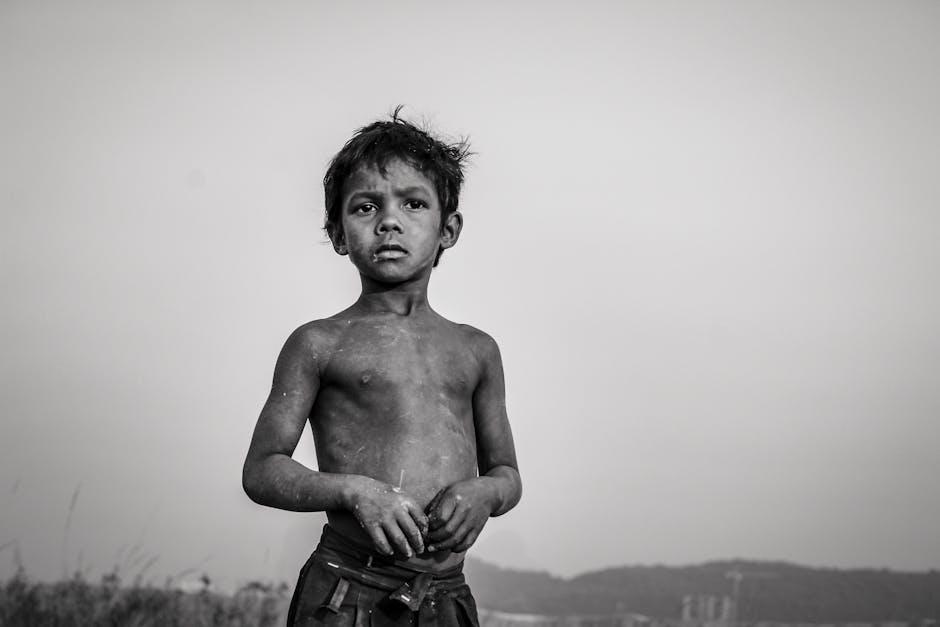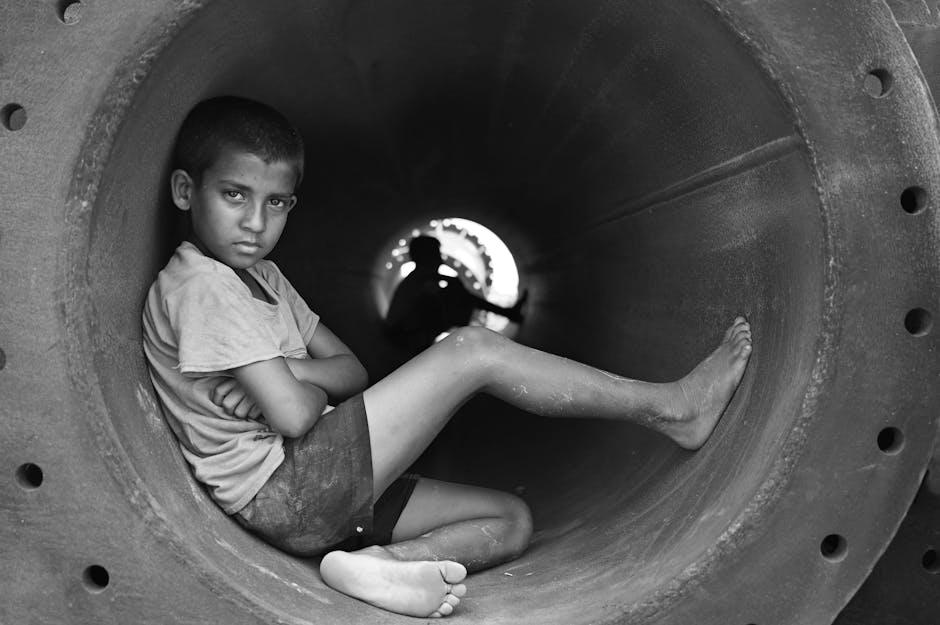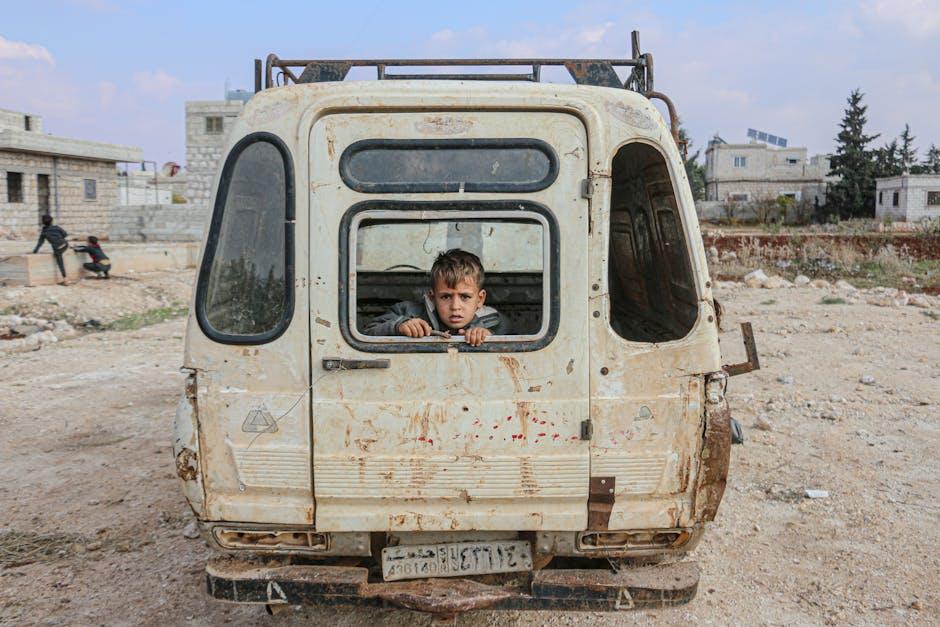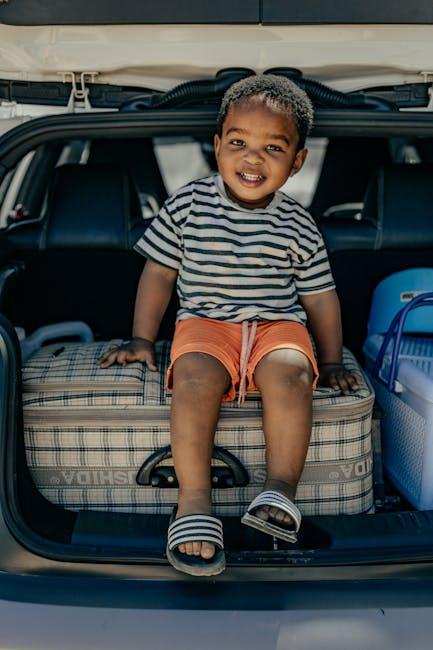In the bustling rhythm of family life, vacations often emerge as cherished interludes, moments to bond, explore, and create lasting memories. Yet, amidst the laughter and adventure, these journeys can also become unexpected classrooms, especially when they expose children to the stark realities of poverty. As parents, guiding young minds through these encounters can be both challenging and enlightening. How do we help our children comprehend such complexities without diminishing the joy of discovery? This article delves into the delicate art of navigating family trips where encounters with poverty are inevitable, offering insights on fostering empathy and understanding in young travelers while maintaining the spirit of exploration.
Understanding the Impact: Childrens Perspectives on Poverty
When children witness poverty firsthand during family trips, it opens a window to the world that is often shielded from them. These experiences can evoke a spectrum of emotions, from empathy to confusion. The innocence of childhood, combined with a raw exposure to economic disparity, can lead to profound questions and realizations. Children often perceive poverty through a unique lens, noticing things adults might overlook. They may see the joy in small things, like a child’s laughter in a modest setting, and wonder why some families live differently from their own. This direct exposure can help them develop a more inclusive and compassionate worldview.
- Curiosity: Kids often ask questions that adults might hesitate to voice.
- Empathy: Seeing poverty can ignite a desire to help others.
- Awareness: Recognizing that not everyone has the same resources or opportunities.
Parents play a crucial role in guiding these encounters, helping children process what they see and feel. Encouraging open discussions and providing context can help children understand the complexities of poverty. By fostering an environment where questions are welcomed, parents can help their children develop a nuanced understanding of the world. These early interactions can plant seeds for future social responsibility and a lifelong commitment to equality.

Fostering Empathy: Encouraging Compassionate Conversations
As families embark on journeys that take them beyond their familiar surroundings, they may encounter different facets of life, including poverty. These experiences can be profound learning opportunities for children, prompting discussions about empathy and compassion. Parents can foster these conversations by focusing on a few key approaches:
- Lead by Example: Children learn a great deal from observing their parents. Demonstrating empathy through actions, such as engaging in meaningful conversations with locals or supporting community initiatives, sets a powerful example.
- Encourage Questions: Create a safe space for children to express their curiosity and confusion. Encourage them to ask questions and share their feelings about what they see and hear.
- Share Stories: Narratives can be a compelling way to connect with the lives of others. Share stories of individuals who have overcome adversity or discuss the history and culture of the places you visit to deepen understanding.
By addressing these encounters with sensitivity and openness, families can transform travel experiences into meaningful discussions that nurture a child’s ability to empathize with others, building a foundation for compassionate interactions throughout their lives.

Practical Guidance: Preparing Kids for Eye-Opening Experiences
When embarking on family trips where children may encounter poverty, it’s crucial to prepare them thoughtfully and sensitively. Start by fostering empathy through open conversations at home. Discuss the diversity of lifestyles and explain that not everyone has access to the same resources. Encourage questions and guide them to think about how they might feel in different situations. Reading books or watching documentaries together can also provide a context for what they might experience, making these encounters more relatable and less shocking.
- Highlight similarities: Encourage kids to look beyond material differences and find common ground with others, such as shared interests or universal emotions.
- Promote active listening: Teach children to listen to the stories of others without judgment, valuing their perspectives and experiences.
- Encourage gratitude: Use the experience to help children appreciate what they have, fostering a mindset of thankfulness rather than guilt.
By preparing children in these ways, you not only help them navigate these encounters with grace but also cultivate a more compassionate and open-minded worldview.

Building Resilience: Turning Observations into Action
When children witness poverty during family trips, it offers a profound opportunity to cultivate resilience and empathy. Observing such disparities can be unsettling, yet it’s a pivotal moment to transform these experiences into meaningful action. As parents, guiding children through these encounters involves fostering open discussions and encouraging them to express their feelings. This nurturing process can empower them to understand the complexities of the world and inspire them to make a difference.
- Engage in Conversations: Initiate open dialogues about what they observed and felt. Encourage questions and provide thoughtful, age-appropriate answers.
- Inspire Empathy: Discuss the importance of compassion and understanding, helping them to see beyond the immediate circumstances.
- Promote Action: Suggest simple ways to help, like participating in local charity events or starting a family donation drive.
Through these steps, children can learn to channel their observations into constructive actions, building resilience and a sense of global citizenship.






























